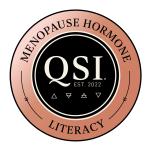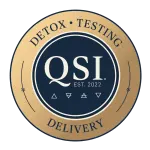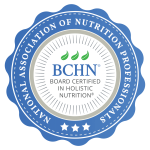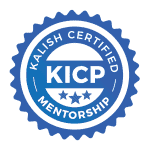8 tips for better fat digestion – we have become obsessed with low-fat everything since the 80’s, but more recently there’s been a move toward high-fat everything, aka the Ketogenic diet.
The Keto diet emphasizes eating healthy fats, while keeping carbs to a minimum. It’s designed to swap sugar (carb) burning for fat burning, with the goal of weight loss.
This all sounds great, but what happens if your fat digestion is poor?
I’ve met many women who have difficulty with the Keto diet because their fat digestion is poor. In fact, I personally had a difficult time with the Keto diet and gained 20 lbs. of weight due to my damaged metabolism. I didn’t consider my unique circumstances before trialing the diet.
The world of nutrition experts seemed to be indicating Keto was the answer to women’s health issues – so I jumped right in without doing my due diligence!
The fat digestion role of your liver and gallbladder
Your liver, which is your body’s #1 detox organ, constantly makes bile that’s transported to your gallbladder through bile ducts. Your gallbladder is a small sac-like organ located below your liver that stores and concentrates bile.
When you eat, the hormone CCK tells your gallbladder to send bile into your small intestine. Bile is what your small intestine uses to break down and digest the fat in your food1.
There’s one caveat though – if your diet is too low in protein and fat, your gallbladder won’t get the signal from CCK to release the bile.
Why is bile so important?
Because bile is laser-focused on fats – absorption of fats can’t happen without it – it’s your body’s main way of:
- Removing harmful fat-soluble substances like toxins, drugs and heavy metals (through bile in your stool)
- Removing excessive cholesterol (half of the body’s cholesterol is used to make bile!)
- Enabling the digestion and absorption of fats and fat-soluble vitamins (A,D,E and K)
It’s also one way your body regulates the good bacteria in your digestive system. When the balance of bacteria is off in your gut, you can end up with candida, irritable bowel syndrome, SIBO (small intestine bacterial overgrowth) and yeast overgrowth.
One way to avoid this is to make sure you have great bile production. How does bile work?

Bile recirculates 14-17 times a day! It moves through your digestive tract and once it reaches the end of the line (so to speak!) in your large intestine, it’s reabsorbed through your gut lining into your bloodstream and back to your liver.
Sometimes the gallbladder doesn’t empty completely and a substance called gallbladder sludge builds up. Gallbladder sludge is a collection of cholesterol, calcium, bilirubin, and other compounds that build up in the gallbladder. It is sometimes called biliary sludge because it occurs when bile stays in the gallbladder for too long.
Cleansing the liver and gallbladder of gallstones dramatically improves digestion which is the basis of your whole health. You have more energy and an increased sense of wellbeing.
Cleansing the liver and gallbladder of gallstones dramatically improves digestion which is the basis of your whole health. You have more energy and increased sense of wellbeing.
Hilda Clark
Both the amount of bile you have and its thickness are important – for bile to do its job, it has to keep flowing! Sluggish bile flow (when it’s too thick) can lead to a buildup of toxins, which leads to a whole host of problems. We are living in a very toxic world and your liver and gallbladder are working harder than ever to clear the toxicity (through bile) to keep you healthy. Increasing your bile flow means fats and vitamins are absorbed and toxins are removed. Having a nutrient dense, whole foods diet is a key factor to making this happen!
Live Life Well!
Join our email list for exclusive offers and the latest news
We agree to never spam you, by submitting you agree to our Terms of Services
What are the reasons that your body can’t digest fat?
So you feel that poor fat digestion might be at the heart of your health problems, but you aren’t sure why. Here are a few of the most common reasons you may not be digesting fat correctly:
- Low HCl (hydrochloric acid – a component of stomach acid that is necessary for fat digestion)
- Sluggish bile flow
- Low functioning thyroid
- Gut dysbiosis (imbalance of gut bacteria)
How do you know if your fat digestion is working?
Your body will always tell you when something is not working as designed. However, we have become accustomed to some digestive issues and don’t pay the attention to it that we ought to. So here are some of the issues that could be related to poor fat digestion:
- bumps on the back of your arms
- nauseated after eating
- burping
- diarrhea
- gas
- pain under rib cage above the belly button and to the right (liver side)
- skin rash
- light-colored stool
- gallbladder attack or gallstones that you know about
- weight loss
Vitamin B6 and birth control pills
Did you know that birth control pills can be a contributor to gallbladder problems? These pills make it difficult for your body to utilize Vitamin B6, which your body needs to keep bile flowing and prevent gallstones.
Quite often, a vitamin B6 deficiency is the reason that your gallbladder isn’t working effectively.

How to optimize your fat digestion?
Focus on increasing your bile flow by eating therapeutic foods (this includes healthy fats) and supplementation when needed.
Therapeutic foods:
- Healthy fats including macadamia nuts, grass-fed, organic butter, avocadoes, oily fish, coconut oil, olive oil, and avocado oil help trigger your gallbladder to release bile. MCT oil is particularly easy to digest. Eating healthy fats stimulates bile production.
- Bitter foods like beets, artichoke and dark leafy greens, especially dandelion greens, are a great way to get your digestive juices flowing.
Nutrient support:
- Lipase, a fat-digesting pancreatic enzyme, supports bile flow.
- Ox bile – which is just that – most closely matches human bile if you aren’t making enough.
- D-limonene, which is derived from citrus fruit peels, dissolves cholesterol, which keeps gallstones from forming.
- Digestive bitters stimulate bile production.
- Vitamins A, B6, D3, E and K – fat soluble vitamins – you need to metabolize fats to absorb these.
What to do if you don’t have a gallbladder?
If you don’t have a gallbladder, it is critical that you are taking ox bile or bile salts with every meal.
Why?
The bile your liver makes drips steadily into your small intestine, instead of being stored and becoming concentrated (really important for breaking down fat well). Because it isn’t concentrated in your gallbladder and then released when fats are eaten, it isn’t able to do its job well.
In addition to ox bile, there are several other ways to support your digestive system:
- Avoid fried foods as much as possible.
- Only eat healthy fats like olive and avocado oil, pastured, grass-fed, organic butter, and coconut oil.
- Supplement with lipase, a pancreatic enzyme that helps with fat digestion, at every meal.
- Keep away from conventionally raised meats and farmed fish.
- Do not eat grains, especially gluten.
- Remove sugar and sugary foods from your diet.
- Increase raw foods in your diet, such as nuts, seeds, fruit, and vegetables.
- Take digestive bitters that include artichoke.
- Incorporate bitter greens like dandelion into your meals.
Conclusion
Improving your fat digestion is possible! And you do this – whether you have a gallbladder or not – by supporting your digestive tract from start to finish including your liver, gallbladder, and pancreas. Most digestive challenges start with a lack of bile flow and your gallbladder is a critical part of your digestive flow system.
The combination of therapeutic foods and supplementation will improve your bile flow so that you can begin incorporating healthy fats into your diet.
We understand that it can be overwhelming at times to “go it alone” in your health journey. If you’d like support, please schedule a free health analysis call with our team today and we will get you started.
Resources
Chiang J. Y. (2013). Bile acid metabolism and signaling. Comprehensive Physiology, 3(3), 1191–1212. https://doi.org/10.1002/cphy.c120023



